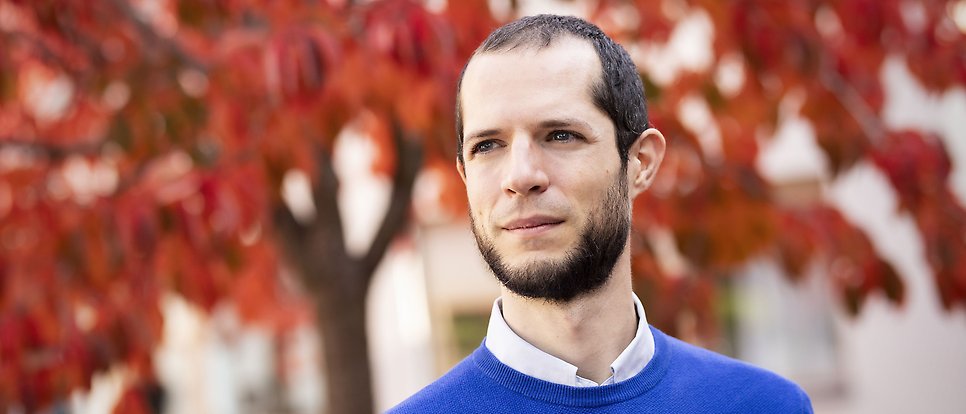He will be studying the effects of extreme weather

Gabriele Messori, professor i meteorologi, säger det är viktigt att kartlägga effekterna av klimathändelser för att ha mer kunskap inför de som kommer. Foto: Mikael Wallerstedt
Hi there... Gabriele Messori, who has been awarded a total of SEK 33 million in grants to establish a new research centre. At the new centre, you're going to be studying the effects of extreme climate events. How will you do this?
“In a number of different ways. Part of the work will focus on collecting different data from different sources, such as news articles and reports from government agencies. Another part will focus on the impact of these climate events on public health. A third area will look at the social perspective – what does an extreme weather event mean for different parts of a society?”
How can you find out how the weather affects health?
“That will be done by my colleague Elena Raffetti. In Sweden alone, there is excellent data on who has presented for care in the public health system, for what and when. You can then cross-refernce this with weather data. From that you can produce interesting information about how different weather conditions affect who seeks care for what.”
Why is it important to map these effects?
“Extreme climate events are already affecting us a lot and are likely to affect us more in the future. Even in Europe, we are often ill prepared. A good example was the floods in Germany, Belgium and the Netherlands in 2021. These are all highly developed countries with great emergency services and meteorologists and so forth. Despite this, you couldn’t say that they handled these events very effectively in terms of alerting the population and managing the whole extreme weather event. To get better at managing such events, it is important to have good basic knowledge.”
Will you calculate the cost of these kinds of climate events?
“Yes, we will do that. But it is a bit tricky because insurance companies are not very keen on giving out information about what they have paid out for a particular event. So it’s easier said than done.”
From what we know so far, what kind of weather event is the most costly?
“We will be focusing on Europe and here it’s wind storms and strong winds that cost the most. They can affect large areas and damage from strong winds happens relatively often in Europe.”
Will we see more extreme weather in the future?
“Yes, but it depends on the type of event and where you live. There is an increase in heat waves almost everywhere. But as for cold snaps, there is a decrease in most areas.”
What extreme weather events are going to increase here in Sweden?
“Here we will see more events with heavy precipitation, probably more heat waves and extremely hot summers and fewer cold snaps. For Sweden, there are also some odd events that can be considered as extreme. For example, rain falling on snow that forms ice. These events are very difficult for ordinary people, for transportation, and for animals. Reindeer aren’t able to break through the ice sheet to access food.”
Centre of excellence on extreme climate events
The Swedish Research Council awards grants to centres of excellence to support building and developing environments that promote research collaborations around a common theme.
The centre of excellence that will study the effects of extreme climate events will start in January 2024. The aim of this initiative is to bring together interdisciplinary perspectives on the impact and effects of extreme weather events: public health, social sciences, and natural and climate science. The centre of excellence will collaborate with Lund University and Research Institutes of Sweden (RISE). The centre has received a total of SEK 33 million in grants, of which SEK 28 million comes from the Swedish Research Council, and SEK 5 million from the Faculty of Science and Technology.
